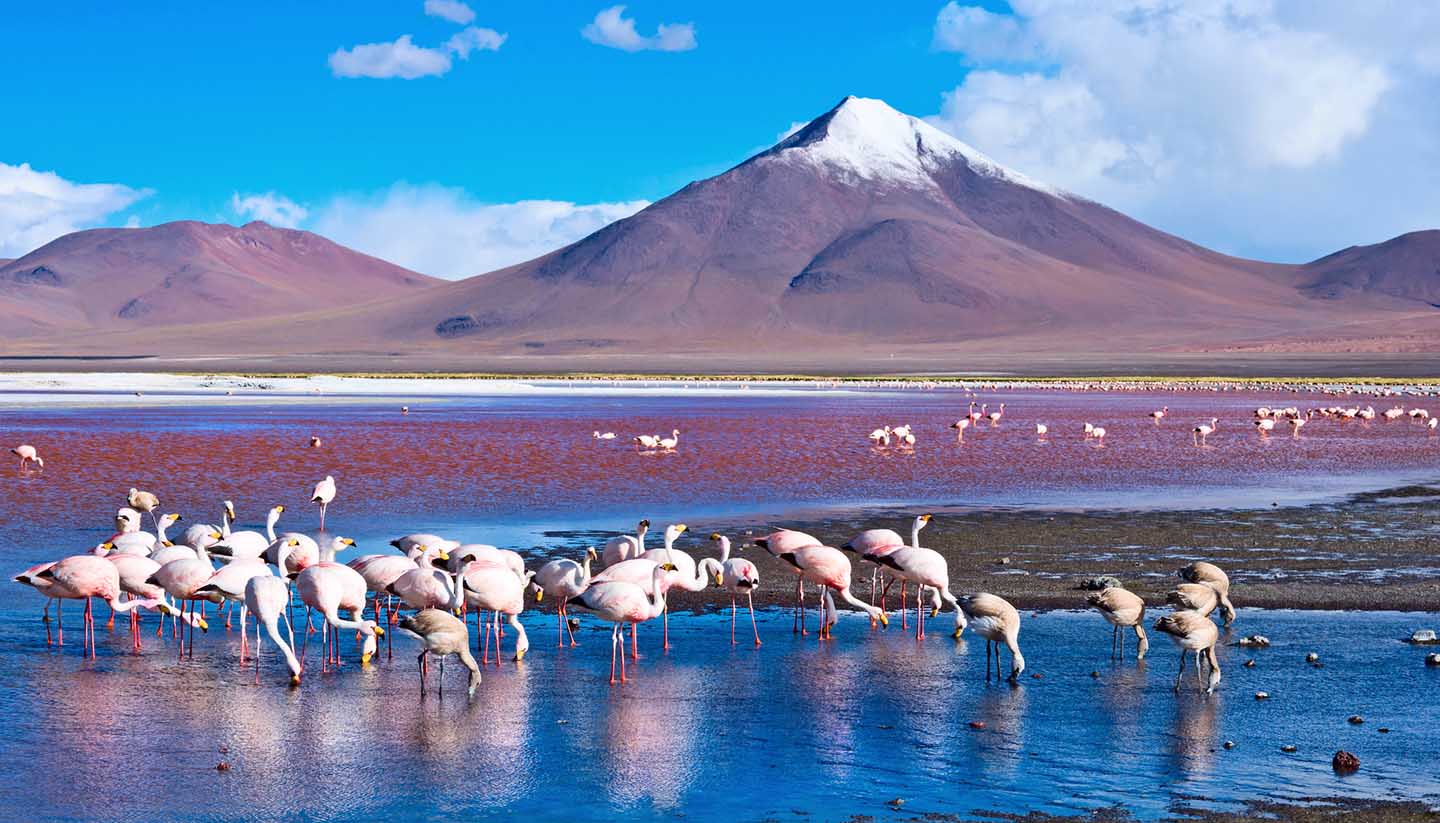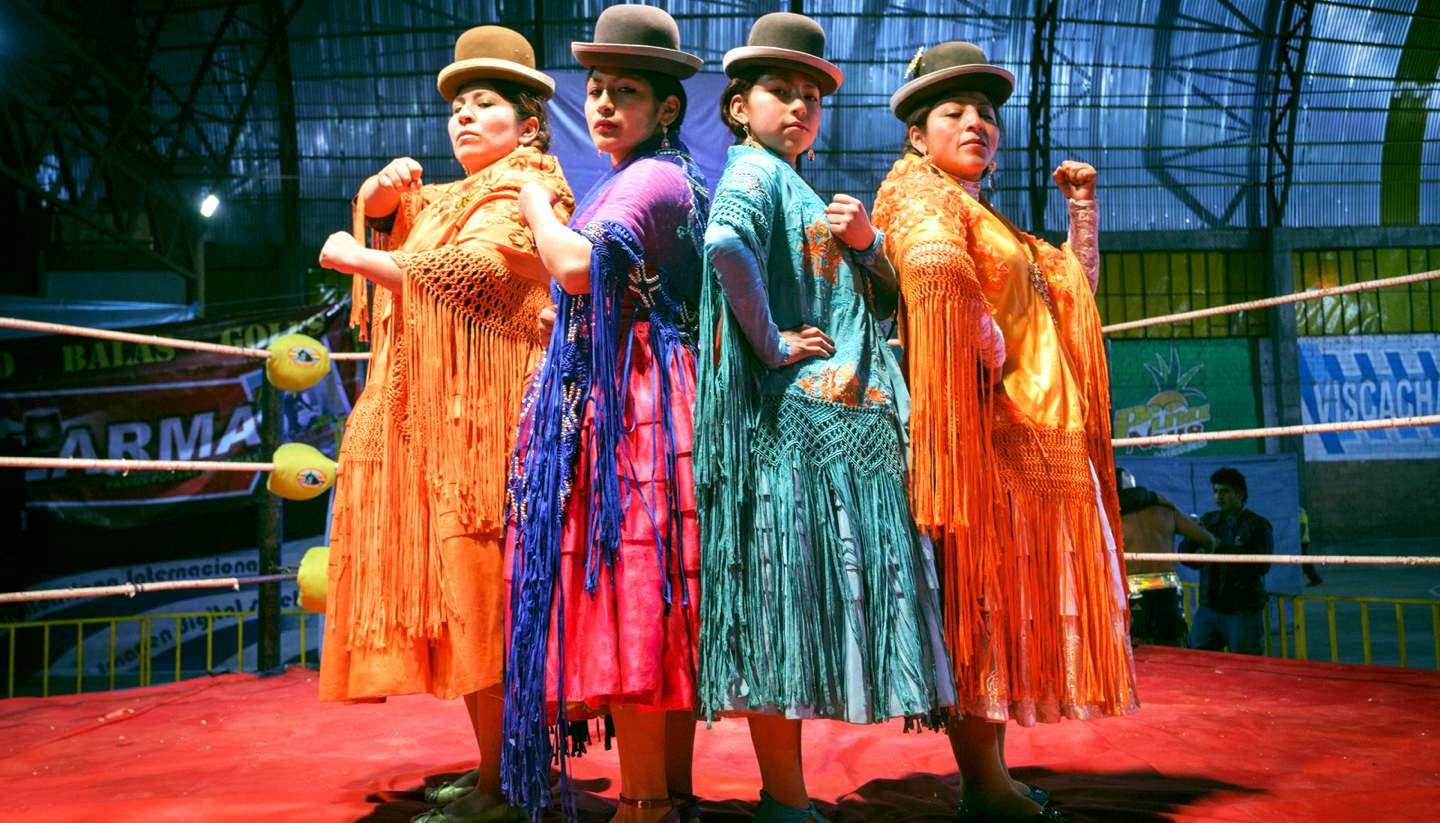Bolivia Food and Drink
Bolivia’s cuisine is as distinctive and varied as its landscape. Local specialities differ depending what region you find yourself in: the highlands and lowlands each have their own flavours. Aymaran cuisine in the Andes and Altiplano is centred on carbohydrates – especially potatoes, rice and quinoa – and meat (mutton and llama). Food in the lowlands tends to be more tropical (yucca and plantain are staples) with beef featuring heavily on menus.
You will find a large range of national and international restaurants, especially in La Paz and other large cities. It is possible to find pizzerias, Chinese restaurants (known as chifas) and high-end eateries, as well as more rustic rotisserie chicken restaurants.
Vegetarian options are thin on the ground (though there are a lot of egg-based dishes) outside the main cities. While Bolivia is landlocked, fish is still readily available, including delicious trout available from Lake Titicaca. For the best deals dine at a local market or plump for a set lunch menu.
Specialities
Salteñas: Pasties filled with meat, vegetables, sauce, olives and hard-boiled egg.
Api con buñuelos: Sweet, hot maize drink with cinnamon, sometimes served with deep-fried pancakes.
Chuño: A naturally freeze-dried potato, which is nutty in flavour and often used in a soup called chairo.
Llajwa: A hot chilli sauce served with most dishes.
Chorizos chuquisaqueños: Pork sausages in a spicy sauce.
Lomomontado: Fried tenderloin steak served with a fried egg and chopped tomato on top.
Cuñape: A pastry made from cheese and yucca flour.
Surubí: A meaty white fish from the Amazonian rivers.
Picante de pollo: Southern-style fried chicken, fried potatoes, rice, tossed salad with hot peppers.
Lechón al horno: Roasted suckling pig served with sweet potato and fried plantains.
Charquekan: Llama or beef jerky, served fried with jacket potatoes, cheese and llajwa.
Mate: A herbal tea, usually made from the coca leaf which helps with altitude sickness.
Chicha: A fermented maize beer available in the Cochabamba region. It’s an acquired taste with a bittersweet flavour.
Singani: A popular brandy made from fermented grapes. Used in cocktails and great with lemonade.
Wine: Bolivia has a fledgling wine industry, but imported wines from Argentina and Chile are also available.
La Concepción: A high-altitude wine from Tarija.
Tipping
Tipping is not generally expected in Bolivia, but it is welcomed – 10% would be fine.
Drinking age
18.



